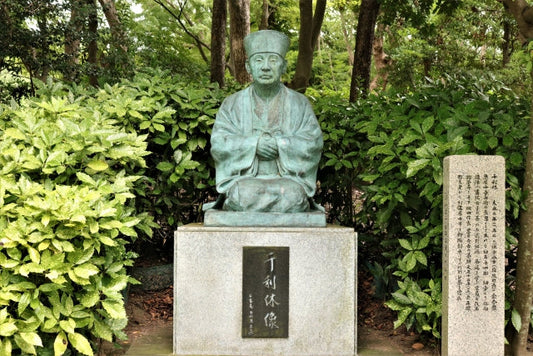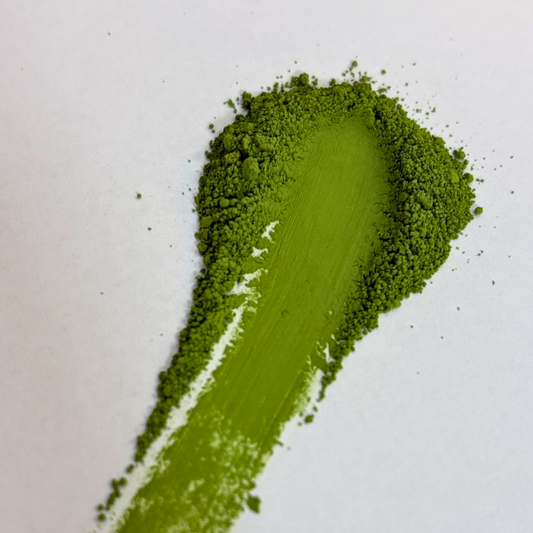Ceremonial Grade matcha is the highest quality matcha used in Japanese tea ceremonies. This article will guide you through the intricate process of creating authentic matcha in Japan, where every step is done with precision to maintain flavor, color, and texture.
What is Ceremonial Grade Matcha?
 Ceremonial Grade matcha refers to the highest quality matcha, specially designed for Japanese tea ceremonies. This premium matcha is made using only first-harvest leaves, meticulously processed to create a smooth texture, vibrant color, and rich flavor. Unlike culinary-grade matcha, which is often used in cooking, Ceremonial Grade matcha is consumed directly for its refined taste.
Ceremonial Grade matcha refers to the highest quality matcha, specially designed for Japanese tea ceremonies. This premium matcha is made using only first-harvest leaves, meticulously processed to create a smooth texture, vibrant color, and rich flavor. Unlike culinary-grade matcha, which is often used in cooking, Ceremonial Grade matcha is consumed directly for its refined taste.
Production Process Overview
This movie is a great summary of entire process of making authentic matcha. The production of Ceremonial Grade matcha involves a traditional, highly specialized process. Below are the key steps:
- Growing the tea leaves: The plants are shaded before harvesting to enhance flavor and color.
- Harvesting: Only the first-harvest leaves are used for ceremonial matcha.
- Producing Tencha: The leaves are steamed and dried to produce Tencha, which is later stone-ground.
- Grinding: The final step is grinding the Tencha leaves into a fine powder using a traditional stone mill.
Growing the Tea Leaves

Ceremonial Grade matcha requires careful cultivation throughout the year. Farmers consistently prune and maintain the tea plants to ensure healthy growth. One of the most critical steps in matcha production is the shading process, which typically takes place 20 days before the harvest.
During this time, the tea plants are covered using either traditional methods, such as honzu (woven straw covers), or modern techniques like kanreisha (black netting). This shading blocks over 90% of sunlight, significantly affecting the plant’s growth and flavor profile.
By reducing sunlight exposure, the tea plants produce more amino acids, particularly theanine, which gives matcha its signature umami flavor. The shading process also limits the production of catechins, compounds responsible for bitterness. This results in a smoother, more balanced taste.
As sunlight becomes limited, the sprouts expand their surface area and increase chlorophyll production for better photosynthesis. This causes the leaves turn a bright green color and become thinner, making them easier to grind on a stone mill.
The aroma, known as Ooi-ka (覆い香), which develops during this shading period, is a key indicator of high-quality matcha. This "shade aroma" contributes to the depth of flavor that sets Ceremonial Grade matcha apart from lower grades.
Harvesting

The harvest for Ceremonial Grade matcha takes place in April to May, depending on the region and climate. Using the rich nutrients accumulated during autumn and winter, the first-harvest leaves contain the highest nutritional value, especially amino acids such as theanine, compared to the second harvest (around June) and the third harvest (around August).
Traditionally, matcha leaves were harvested by hand, a practice still followed by farms producing the highest quality matcha. Handpicking ensures that only the finest, tender leaves are selected, while older, tougher leaves that can affect the flavor are left out. In modern farms, machine harvesting is increasingly used, and machines continue to improve in replicating the precision of handpicking.
Producing Tencha

Once harvested, the leaves are immediately steamed to prevent oxidation and fermentation, which could negatively affect the flavor, color, and aroma. The steaming duration is around 20 seconds, but it is very sensitive to conditions. If the steaming time is too short, a grassy smell will remain, and if it's too long, the rich, fresh aroma will be lost.
Once steamed, the leaves are air-cooled and dried using a furnace known as a Tencha-ro (碾茶炉). The leaves are then de-stemmed and de-veined, resulting in Tencha. Unlike other types of tea, Tencha leaves are not rolled during processing. This unique step ensures the soft, fluffy texture required for matcha production.
Grinding (Tencha Processing)
Tea farmers typically handle the process up until Tencha production. After that, tea wholesalers often take over to blend and grind the leaves.
Blending

Each farm's Tencha has unique characteristics. Wholesalers blend the Tencha from various farms to improve quality and maintain consistency.
Grinding
 For Ceremonial Grade matcha, Tencha is ground into powder using a stone mill made from granite. The mill, measuring 33 cm in diameter, has grooved surfaces and rotates at around 55-60 rotations per minute. This slow rotation prevents heat buildup, which could alter the matcha’s flavor.
For Ceremonial Grade matcha, Tencha is ground into powder using a stone mill made from granite. The mill, measuring 33 cm in diameter, has grooved surfaces and rotates at around 55-60 rotations per minute. This slow rotation prevents heat buildup, which could alter the matcha’s flavor.
It takes an hour to produce just 40 grams of matcha. Although slow, stone grinding remains the preferred method for producing top-quality matcha. Lower-grade matcha is ground using machines, which allow for bulk production but at the cost of flavor and quality.
Key Differences: Ceremonial Grade vs. Lower-Grade Matcha
The process of producing Ceremonial Grade matcha involves more attention to detail, ensuring higher quality compared to lower-grade varieties. Here’s a comparison:
|
Aspect |
Ceremonial Grade |
Lower-Grade Matcha |
|
Leaves Used |
First-harvest leaves only |
Second, third, or autumn harvest leaves |
|
Cultivation Method |
Always shaded for around 20 days |
Sometimes unshaded |
|
Harvesting |
Handpicked or precise machine cut |
Primarily machine harvested |
|
Grinding Method |
Stone-ground with slow rotations |
Machine-ground for faster production |
ZENKYU MATCHA Products
At ZENKYU MATCHA, we offer only the finest Ceremonial Grade matcha, crafted using traditional methods in Kyoto, Japan.

- Premium Blend: This matcha is a blend of several cultivars, curated by a Kyoto tea merchant with over 270 years of expertise. It delivers a smooth, well-balanced flavor with mild sweetness, perfect for versatility.
- Single Origin: Made from a single cultivar and vintage, our Single Origin matcha offers a bold, distinct flavor that reflects the terroir of the farm. It’s ideal for connoisseurs seeking an authentic matcha experience.
About Zenkyu Matcha

Zenkyu Matcha is more than just a drink—it’s a daily ritual that nurtures health and mindfulness. Inspired by Zen Buddhism and the Japanese tea ceremony, Zenkyu Matcha offers the finest ceremonial-grade matcha from Kyoto, elevating your matcha experience to new heights.



